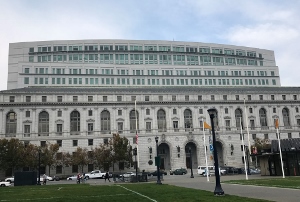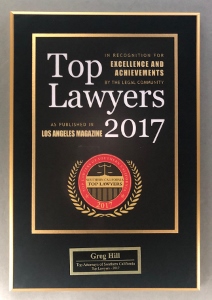Jane Nuckles considered parolee Adam Gray her son-in-law because Gray and Nuckles’ daughter had a child together. Nuckles lived in Kings County in California. Both Knuckles and Gray were on parole.
Brief of Article: Woman allowed parolee to stay at her house guilty of being an accessory in assisting parolee abscond from supervision.
Kings County is adjacent to Kern County. Adam Gray was released from prison in 2008 to Kern County. As a condition of his parole, he was ordered to stay in Kern County; or at least not leave Kern County without his parole officer’s permission.
In 2009, Gray’s parole officer lost contact with Gray. Gray was living at Nuckles’ home. While he was there, Gray was featured as a wanted fugitive in the “Crime Stoppers” section of the local newspaper. Nuckles, Gray and Nuckles’ boyfriend celebrated Gray’s inclusion in the paper. The boyfriend (this came out later) told Gray that he worried that Nuckles’ harboring Gray could result in Nuckles’ own parole being revoked and her returning to prison. Nuckles dismissed this concern, saying she would “take a bullet” for Gray.
 California Supreme Court San Francisco
California Supreme Court San Francisco
The boyfriend then heard Nuckles and Gray making plans of how to evade police if police come to her house looking for Gray. Nuckles and her boyfriend then got in an argument and the boyfriend called the police on Gray. Police came to the home, arrested Gray and sent him back to prison for six months. Police also arrested Nuckles. She was charged with being an accessory to Gray’s absconding from parole.
The crime of accessory consists of the following elements:
- Someone other than the accused, that is, a principal, must have committed a specific completed felony;
- The accused must have harbored, concealed, or aided the principal;
- With knowledge that the principal committed the felony or has been charged; and
- With the intent that the principal avoid or escape from arrest, trial, conviction or punishment.
This interpretation of Penal Code § 32, “Accessory Liability,” was set out by
People v. Plengsangtip (2007) 148 Cal. App. 4th 825, at 836.
At trial, Nuckles argued that she did nothing to aid Gray in the crime that he went to prison for, dissuading a witness. She therefore could not be an accessory to such a crime. However, she was convicted by the trial court and appealed.

The case went all the way to the California Supreme Court, which affirmed the trial court, but for new reasons (
People v. Jane Nuckles (2013 DJDAR 5168)). The California Supreme Court affirmed the conviction because Nuckles helped Gray avoid punishment for dissuading a witness. The term of parole that Gray remain in Kern County was part of the punishment.
The California Supreme Court explained that the concept of punishment is broader than simply the term of imprisonment. The court equated Nuckles’ conduct to helping Gray avoid a prison term, noting
People v. Jefferson, a 1999 case.
Jefferson held: “[U]nder the present law, the prison ‘term’ is the actual time served in prison before release on parole, and the day of release on parole marks the end of the prison term…”
Indeed, other courts have acknowledged that parole following a prison term is a continuing form of punishment.
Samson v. California (2006) 547 U.S. 843, 850. It is in fact a mandatory component of any prison sentence (Penal Code § 3000(a)(1)). During parole, the parolee is still in the corrective custody of the Department of Corrections and Rehabilitation.
Here, the Supreme Court found, there was no question that Gray committed a felony, was sentenced to prison and was on parole. Nuckles was aware of this. She was aware that he was a fugitive while living with her. Her conviction and sentence of four years in state prison was consequently affirmed.
This article is brought to our reader’s attention because parole is an often misunderstood concept and needs to be better understood so our clients can avoid parole violations.
The citation for the California Supreme Court ruling discussed above is People v. Jane Nuckles (2013) 56 Cal. 4th 601.
For more information about accessory liability, click on the following articles:
- Conviction for Accessory to Shoplifting and Burglary Has Lesson for Those Defending Such Charges
- Conspiracy Liability Very Broad for Robbery – Beware
- Conviction Reversed for Conspiracy to Commit Burglary for Gasoline
Contact Greg Hill & Associates
 California Supreme Court San Francisco
California Supreme Court San Francisco